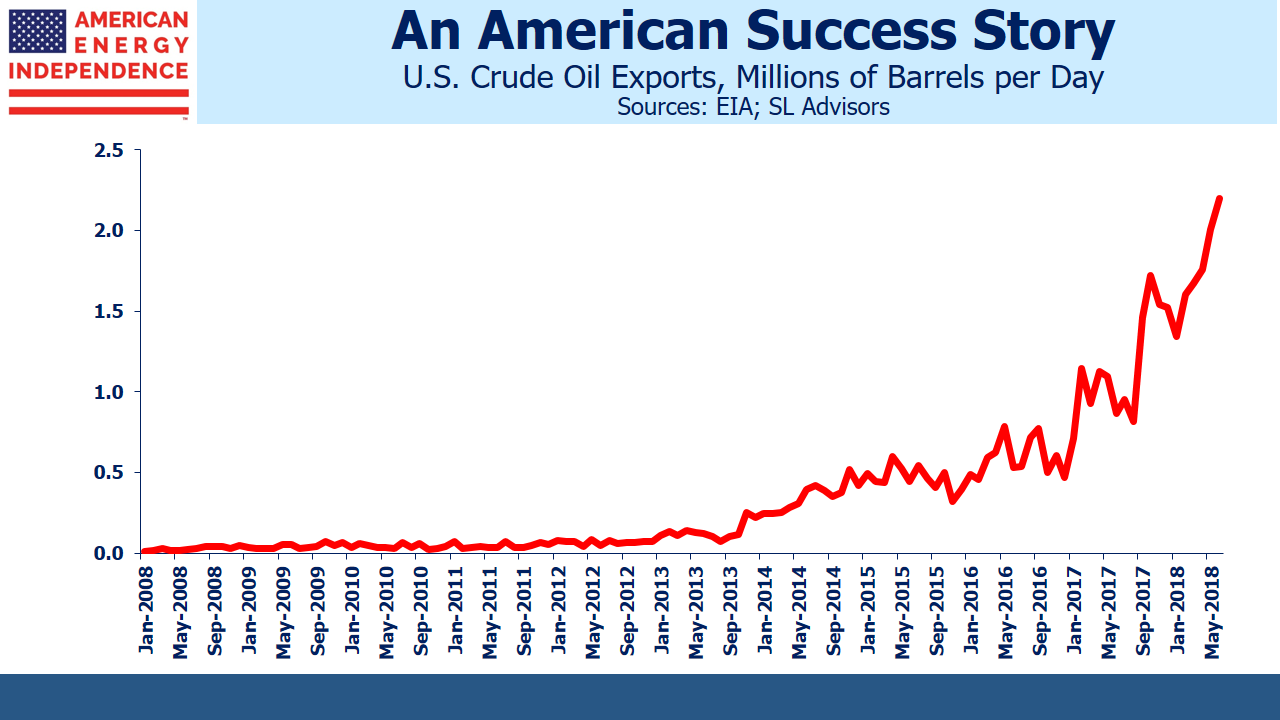Start with Iran. In May, Trump withdrew from the Nuclear Accord over strong opposition from foreign allies and domestic policy experts. America announced it would unilaterally impose sanctions on Iran from November 1. Critics said this would be ineffective. Since then, Iranian oil exports are down 25% and likely to fall further. Any company trading with Iran risks losing access to the U.S. banking system, a penalty sufficiently onerous that buyers of Iranian oil are wasting no time sourcing alternatives. Companies from South Korea, France, Japan, Greece, Spain and Italy have all reduced or halted purchases in recent months. U.S. oil and gas exports are a new weapon.
Coincidentally, this has also created an opportunity for exports of ultra-light condensate oil from Texas to meet Asian demand, with buyers increasingly shunning Iranian condensate. U.S. oil and gas exports are playing a bigger role.
The loss of Iranian crude oil on world markets has pushed prices higher. But the Shale Revolution has moderated the U.S. economy’s sensitivity to energy prices. The negative of consumers spending more on gasoline will be mostly offset by a resurgent domestic energy sector. The New York Times published a rare Trump-positive reduced, noting that the Iran strategy was working.

Germany’s heavy reliance on renewables to provide electricity has been hampered by its use of coal. Since it’s not always sunny and windy, solar and wind can’t provide a complete solution. In Germany, dirty coal-burning power plants provide the reliable baseload supply every electricity grid needs. Their emissions have negated much of the benefit of renewables, so Germany wants to burn more natural gas, which is cleaner. Its lower CO2 output makes it a natural complement to renewables (see Pipeline Investors Fight Climate Change).
Consequently, Germany is planning Nord Stream 2, a controversial pipeline that will bring natural gas from Russia to Germany. Trump is correct to ask, “What good is NATO if Germany is paying Russia billions of dollars for gas and energy?” But America can do more than just criticize; Liquefied Natural Gas (LNG) from the U.S. provides an alternative not susceptible to mid-winter maintenance. Russia has used this tactic before, when negotiations with Ukraine weren’t going in the desired direction. Shivering Ukrainians found they had little leverage with Gazprom, Russia natural gas company, who is not an attractive supplier. Last week Trump promoted U.S LNG to Poland, another NATO ally.












Leave A Comment